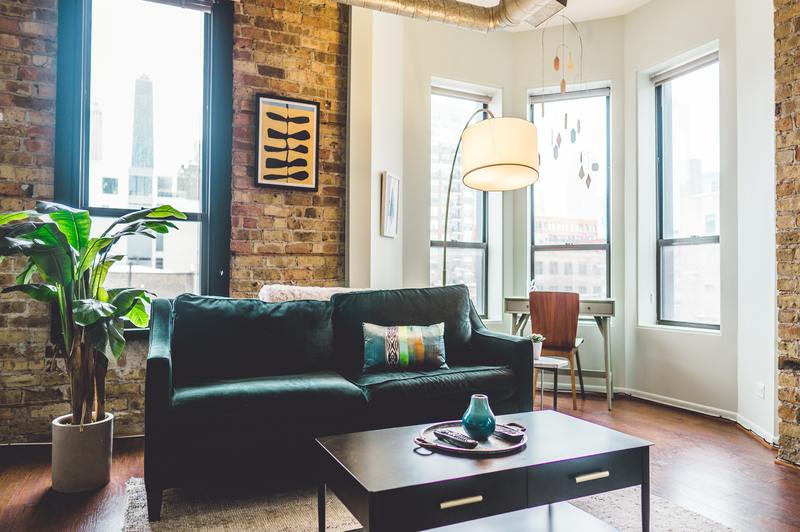It’s natural to ask, ‘what does pest control do in apartments?’ If everything is covered, including pest control, you’ll know if paying a series of fees is worth it.
Like single-family houses and businesses, apartments can be plagued by pests, which can be challenging to deal with at times. When numerous people live close to one another, pests that renters wish to keep away can unintentionally be introduced.

It’s not just about dealing with pests, but also how to do it in a way that doesn’t harm the lives of the other renters. You can read this article about how to do pest control at home by yourself, this can help you along the way.
Importance Of Apartment Building Pest Control Inspections
Do pesticides in apartments work? Yes, and it’s also entirely crucial.
If you’re wondering why pest control is so vital for multifamily properties, consider that it’s more than just a health concern, tenant complaints, and the loss of a property’s value.
Pest control services for flats are crucial because apartments are perfect breeding grounds for pests, and if you don’t get rid of them as soon as possible, they’ll never leave once they’ve established a foothold.
In a rental property, who is in charge of pest control? Even though the responsibility for pest-control services varies from state to state and municipality to municipality, landlords are generally responsible.
The landlord is required by most regulations and legislation to keep the property habitable, and an infestation of cockroaches, ants, bedbugs, or rats can quickly make a home unlivable. When a tenant’s lifestyle or personal decisions have directly contributed to the pest problem, a landlord may find himself off the hook for expenses like pest control for flats in one specific instance.
For a tenant, what does this entail? On the other hand, renters should take a few easy precautions to avoid causing a pest problem. Some of these steps could be:
Step #1. After using the dishes, wash them and put them away.
Step #2. After meals, wipe down the counters and tables.
Step #3. Regular mopping and sweeping.
Step #4. Get rid of the debris that bugs can hide in.
Step #5. Any leaks, such as dripping faucets, sweating pipes, or dripping seals around windows or doors, should be reported.
Do apartments need pest control every month?
How often should pests be treated in an apartment? “It depends,” says the answer.
If the infestation is horrible, some units may require treatment every month.
The majority of the time, however, this is a short-term solution that lasts little more than six months. For preparation and budgeting, read this article about how much does aptive pest control cost.
Landlord’s Responsibilities Regarding Pest Control
In general, landlords are responsible for keeping their properties habitable. Landlords must keep the property up to code and make repairs as soon as possible under this broad provision.
It could also suggest that they should supply pest control services, primarily if the tenant’s conduct did not cause the problem with the insects or rodents.
Tenant’s Responsibilities Regarding Pest Control
Depending on your state of residency, the legal language may differ. Still, renters are usually responsible for notifying their landlord of pests and not introducing them into the unit as soon as they become aware of them.
This means that a renter may be responsible for pest control costs if a trash can overflow or a pipe leak goes unnoticed. If you have a little insect spray in your apartment, it may help, but the best pest control for apartments is to clean up after yourself and be on the lookout for any ants or cockroaches that try to get in.
4 Steps To Keep Pests At The Bay
Step #1. Maintain a clean environment
For pest control in flats, it’s best to keep them clean and maintained regularly. Pests such as ants, cockroaches, rats, and flying insects mostly attract rubbish.
As a result, collecting waste creates a safe home for these bugs to thrive.
Step #2. Clean up spills right away
You can control termites by applying a top coating to any structural timber and using less water. Cockroaches and rodents are attracted to damp areas.
They also foster the growth of mold and mildew, which are hazardous germs that can be inhaled or touched by humans. Moisture should be monitored and kept to a minimum to avoid undesirable moisture from accumulating in different areas of your dwelling.
Step #3. Make sure every corner is well-lit
The majority of pests prefer to live in the dark. This refers to unreachable locations and areas that are not disturbed on a regular basis in your dwelling.
Make sure that each and every room has enough lighting to cover all of the areas and that bugs don’t have a good time in it.
Step #4. Experts in pest control should be consulted
These folks are well-versed in what they are dealing with and how to cope with them. They know how to get the task done quickly and effectively.
These experts are experts in pest control for apartments, regardless of the degree of the pest infestation in your property.
Conclusion
If you’re a renter in an apartment complex, it’s likely that your landlord has been taking care of the communal areas’ pest management. The private regions, on the other hand, are yours to keep.
Pest control may appear to be a daunting task, but with the correct equipment and information, you’ll surely have your way to success. You’ll be astonished and amazed at how simple it is to keep pests out of your flat, and that will be all on what does pest control do in apartments.
